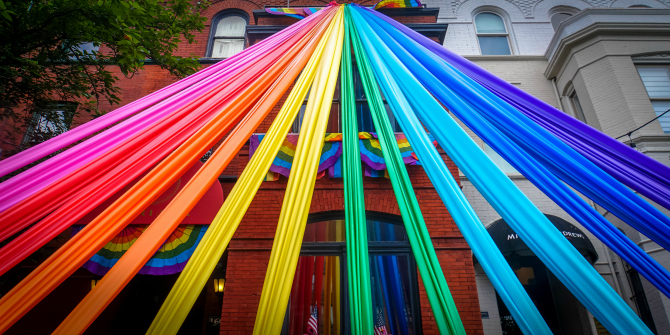
17 May is International Day Against Homophobia, Transphobia and Biphobia (#IDAHOBIT). Beginning in 2004, IDAHOBIT is now celebrated in more than 130 countries and is a moment to unite in support of the recognition of human rights for all, irrespective of sexual orientation, gender identity or expression, and to celebrate gender and sexual diversity.
Spectrum is LSE’s LGBTQ+ staff network and is here to represent and support staff who are lesbian, gay, bi, trans and of any sexual orientation and gender identity. IDAHOBIT 2020 is a hugely important opportunity to keep up momentum for positive change, despite the difficult times we are facing globally during the COVID-19 pandemic. For #IDAHOBIT2020, members of Spectrum have recommended 7 books to entertain, engage, move and inspire.
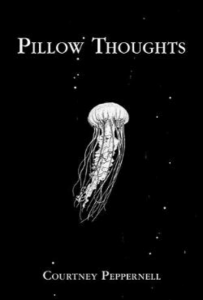 Pillow Thoughts. Courtney Peppernell. Andrews McMeel Publishing. 2017.
Pillow Thoughts. Courtney Peppernell. Andrews McMeel Publishing. 2017.
This is a great collection of poems to read if you are in a self-reflective mood. Courtney Peppernell explores themes such as love, heartbreak and loneliness. The poems are short, which makes them ideal to read with a quick cup of tea. Although the poems mostly touch on heavy themes, they often have a reassuring, uplifting quality to them.
Recommended by Jake Watkins, BSc Administrator, Department of Social Policy
 Love, Simon series. Becky Albertalli. Penguin. 2015-
Love, Simon series. Becky Albertalli. Penguin. 2015-
Simon vs The Homosapiens Agenda, Leah on the Offbeat and The Upside of Unrequited are the easy queer Young Adult reads I wish had been around when I was a teenager. The change in narrators between books highlights how easy it is to misinterpret even your best friends. Gender, race and sexual orientation are as intrinsic as family, class, wealth, personality and body image to how we see ourselves and each other.
Recommended by Hayley Reed, Senior Communications Manager
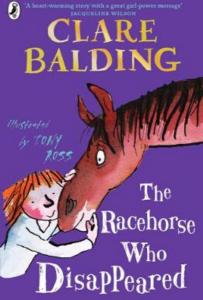 The Racehorse Who Disappeared. Clare Balding. Puffin. 2017.
The Racehorse Who Disappeared. Clare Balding. Puffin. 2017.
I would like to recommend The Racehorse Who Disappeared by Clare Balding. I have been reminded during such unprecedented and challenging circumstances, where we can often feel worried or low, how important it is to identify doings things that make us smile and laugh, and that it’s ok to do that. Furthermore, to reflect on those people in our lives who bring hope and a reminder there are rainbows after the rain. Clare Balding is an incredible individual, who is a great hero of mine, and this children’s book demonstrates how she has overcome adversity and is such a fab LGBTQ+ champion. It may not be insightful poetry, or a call to action, but it is joyful. Enjoy.
Recommended by Ben Plummer-Powell, Chief Philanthropy & Global Engagement Officer
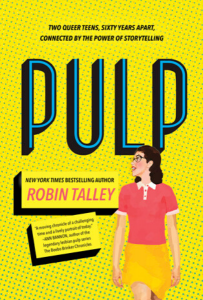 Pulp. Robin Talley. Blackstone Publishing. 2018.
Pulp. Robin Talley. Blackstone Publishing. 2018.
The stories of gay teenagers Janet Jones and Abby Cohen, both preparing to finish school and go to college, are set six decades apart. The rules, rigidity and underlying ominous narrow fear of Janet navigating a lesbian relationship in 1950s America jars against present-day Abby’s world. Her own struggles are not about coming out, which is refreshing, and are set against an effortless blend of sexual orientations, genders, races, religions and relationships. What’s changed, what hasn’t, what can’t?
Recommended by Hayley Reed, Senior Communications Manager
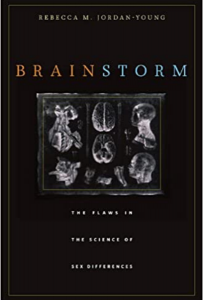 Brain Storm: The Flaws in the Science of Sex Differences. Rebecca M. Jordan-Young. Harvard University Press. 2011.
Brain Storm: The Flaws in the Science of Sex Differences. Rebecca M. Jordan-Young. Harvard University Press. 2011.
In Brain Storm: The Flaws in the Science of Sex Differences, Rebecca Jordan-Young challenges the scientific consensus about sex difference by exposing how the assumption that men’s and women’s brains are hardwired differently due to variations in hormone exposure in the womb is based on very weak scientific evidence.
Recommended by Elisabet Vives, Project Officer and Researcher at LSE Consulting
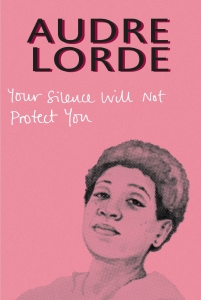 Your Silence Will Not Protect You. Audre Lorde. Silver Press. 2017.
Your Silence Will Not Protect You. Audre Lorde. Silver Press. 2017.
This recent book is the first time a British publisher has brought together essays, speeches and poems by the self-described ‘black, lesbian, mother, warrior, poet’ Audre Lorde in a single collection. As Sara Ahmed observes in her introduction (and Tricia Wombell in her LSE RB essay on Lorde’s influence), Lorde’s work identified and challenged ‘brutalising and devastating structures of racism, sexism, classism, ageism and heterosexism’. Reading this collection gives the opportunity of immersing yourself in the beauty, intelligence and eloquence of Lorde’s prose and poetry, but her writings also pose necessary, and at times necessarily sharp, questions about the value of allyship and its moments of failure, serving as a reminder of the work that must be done to ensure solidarity and alliance are intersectional – and effective.
Recommended by Rosemary Deller, Managing Editor of LSE Review of Books
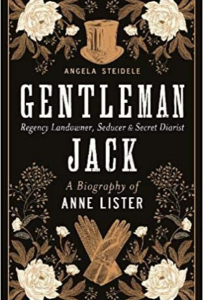 Gentleman Jack: The Biography of Anne Lister – Regency Landover, Seducer and Secret Diarist. Angela Steidele. Serpent’s Tail. 2019. (Available from LSE Library).
Gentleman Jack: The Biography of Anne Lister – Regency Landover, Seducer and Secret Diarist. Angela Steidele. Serpent’s Tail. 2019. (Available from LSE Library).
Over the past year, the life of lesbian pioneer Anne Lister of Shibden Hall has become more widely known due to the popular BBC TV programme. People have been inspired by her courage: she is believed to be the first woman in England to have married another woman (albeit without legal recognition), she travelled and she ran businesses. However, Angela Steidele’s biography is certainly worth reading for its honesty. It really emphasised to me that people can be brave and pioneering, whilst being difficult and in many ways unlikeable. It shows how she manipulated some of her many lovers, treated her tenants quite badly and often made unions just for material advantage. A person I would have admired in many ways, but perhaps would not have wanted as a friend!
I would also like to suggest a recent initiative from LSE Library and Google Arts and Culture that has digitised materials relating to the life of Vera ‘Jack’ Holme, suffragette, chauffeur to the Pankhursts and Pethick-Lawrences and a cross-dressing actor. In particular, you can see a marvellous acrostic poem to her lover, Lady Evelina Haverfield, written in October 1909. Sadly little public evidence of their relationship survives and this may have been its first opportunity to reach a wider audience.
Recommended by Heather Dawson, Academic Support Librarian
LSE Review of Books thanks all the members of the LSE community who contributed to this reading list with their book recommendations.
Note: This reading list gives the views of the contributors, and not the position of the LSE Review of Books blog, or of the London School of Economics.
Image Credit: Photo by Cecilie Johnsen on Unsplash.




